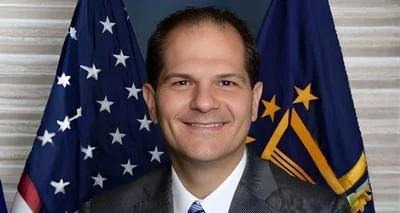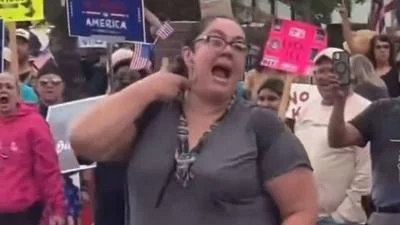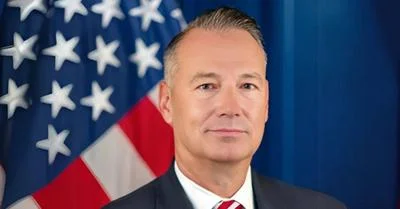Senator Dick Durbin and Senator Tammy Duckworth | Wikipedia
Senator Dick Durbin and Senator Tammy Duckworth | Wikipedia
The Chicago Republican Party has expressed its support for communities protesting the placement of undocumented immigrants in Illinois, decrying the lack of presence from congressional leaders at public meetings and town halls.
The party questions the absence of Senators Dick Durbin and Tammy Duckworth, along with Chicago Congressmen, as residents voice their concerns about the influx of immigrants. Committeeman Walter Adamczyk highlights the need for elected officials to face the public and address the ongoing border crisis.
“The Chicago Republican Party supports the efforts of communities to protest the imposition of illegal aliens on them by the Democratic regime in Illinois. Representatives of the Chicago GOP have attended town halls and held press conference to question and protest the monies being spent on housing facilities, while residents receive none of the new spending. What the GOP has not seen at any of the meetings are any leaders from Congress, or even aides, to speak to the outraged public,” the Chicago GOP said in a press release.
“Where is Senator Durbin, we ask? Where is Senator Duckworth, recently described as ‘Virginia’s third Senator’ since moving her family to that state? Where is any Chicago Congressman, as their constituent neighborhoods are invaded? The answer is nowhere to be seen.”
“’It’s just not right," Republican 29th Ward Committeeman Walter Adamczyk stated after attending a community meeting on the closure of Amundsen Park field house to house aliens.
’These are the people who elected these Congressmen, and we can’t even get an aide to show up! They are all hiding from tough questions about illegal aliens coming over Joe Biden’s open border.’”
“The Chicago GOP demands that Chicago Congressmen find some courage and face the public. The Biden border policy is in our view indefensible, but these Democrats cannot run and hide. The constituents have a right see their representatives and hear their explanations for allowing this crisis to continue.”
In Chicago, a recent poll conducted by Matthew Podgorski at M3 Strategies revealed a deep divide among Chicago voters regarding the city’s response to the new migrant situation.
The survey, conducted between Oct. 1 and 3, included 659 likely Chicago voters and highlighted several key findings that indicate the city’s growing migrant crisis has stirred controversy and contrasting perspectives.
A significant majority of voters, approximately 70%, believe that Chicago’s focus on housing new migrants negatively affects current residents in need.
This sentiment transcends partisan and demographic lines, with a substantial portion of Democrats, women, Black, Hispanic, and South and West side voters sharing this concern.
Alderman Gilbert Villegas of the 36th Ward noted the community needs to be involved in the relocation of illegal immigrants in Chicago after he received notice from the Mayor’s office regarding the identification of a site in the eastern end of his ward for housing asylum seekers.
Villegas stressed the importance of involving the community and giving local residents a forum to discuss the potential relocation of migrants to the West Town neighborhood.
The proposed relocation prompted discussions and concerns within the community, particularly given its proximity to a quiet neighborhood surrounding a park with many high-value homes.
Meanwhile, police stations have been housing hundreds of illegal immigrants due to shelters operating at full capacity, with concerns raised about the living conditions in these facilities, even as the Fire Department’s authority to intervene remains limited.
According to WTTW, some 1,600 illegal immigrants are currently camped out at Chicago’s police stations.
The Chicago Fire Department lacks jurisdiction to assess overcrowding and conditions at police stations in the city, as these facilities do not fall under their purview due to their distinct nature in comparison to venues with specific occupancy regulations.






 Alerts Sign-up
Alerts Sign-up